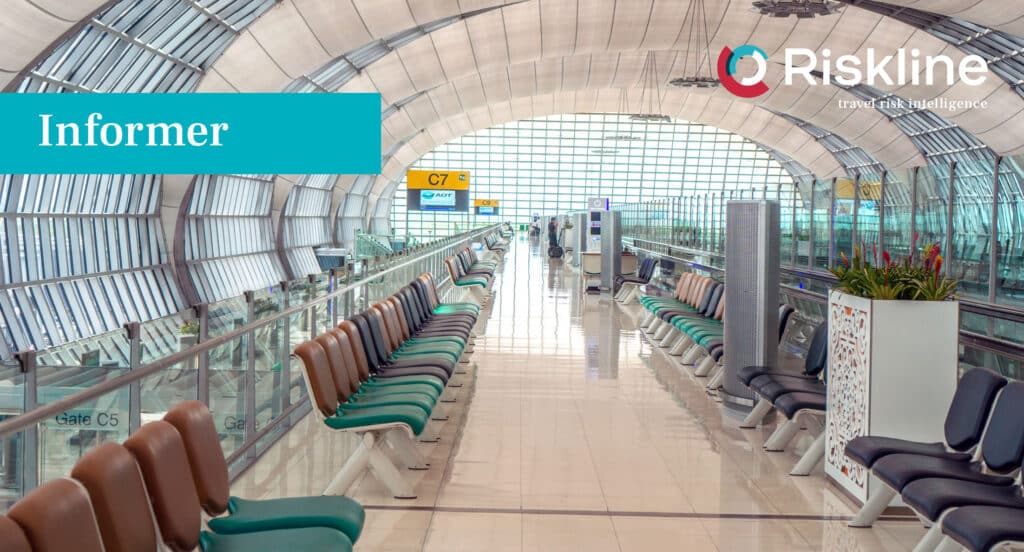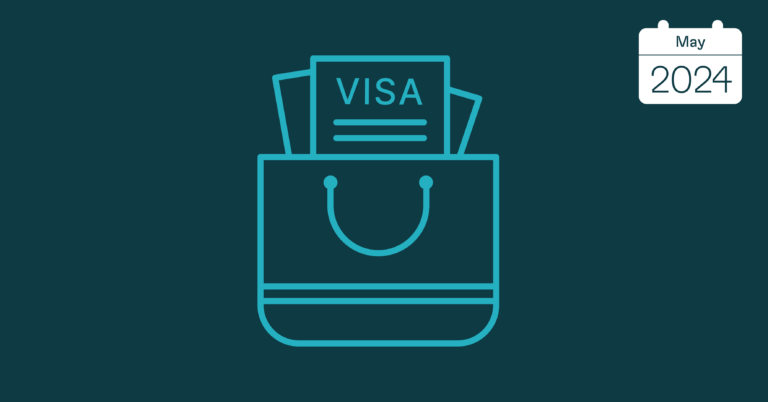[Transcript]
Hello everyone, my name is Suzanne Sangiovese and I am the Commercial and Communications Director at Riskline, a travel risk intelligence company.
This morning I’m speaking with Thorkild Lykke, an independent advisor with 20 years of experience in cost containment and global medical assistance. Thorkild currently resides in the Copenhagen area and has recently travelled through southeast Asia.
Suzanne: First of all, Thorkild, how are you and your family doing right now? What’s the situation like for you in Denmark?
Thorkild: Thank you Suzanne. We are OK. All but essentials are closed. Supermarkets are well-stocked and people practise social distancing. Our Queen as well as our PM has so far been brilliant in their communication on what is needed from all of us and it is generally widely respected. We are also a country where many people are used to working from home, so many could take their laptop and were more or less ready from day 1 at home.
We are not completely closed. Construction, manufacturing to some extent is on-going. The public sector takes the opportunity to fast forward renovation of schools while they are closed. Of course, many have lost their jobs in sectors where business is completely shot down but also here the Government has reacted promptly by establishing emergency funds for businesses.
You recently travelled to Vietnam, Cambodia and Thailand just as more restrictions were coming into effect. What was the atmosphere like there?
Quiet – calm. A few inspections with temperatures and such but in the beginning it just felt more empty than usual.
When we left Denmark at the end of February the official advice was to be careful but there were no areas we were warned against. The level of infected people was low and we had chosen to reroute to avoid Hong Kong and Beijing so the pre-trip research showed we were good and safe to go.
The biggest change was Angkor Wat in Cambodia where the local guides told us it was 10% or less of the total usual amount of tourists. In Bangkok we saw more people with face masks than usual, shopping malls started to have very few shoppers but we did not feel unsafe.
Did you consider returning home early?
We evaluated the situation, of course. We had just left Vietnam when I got a Riskline alert, that the country suspended the visa free entry for Nordic nationals, so we felt safe to move on to Cambodia. While there we got alerts that certain countries such as Italy and France were banned from entry, we still felt safe. Actually, I got the info from the alerts much earlier than from our foreign ministry or any travel sources.
Just when we had left Cambodia for Thailand the Danish government announced a lockdown of Denmark in terms of schools, offices, etc. and advised all travellers to return ASAP. After the press conference we used various sources including the latest Riskline reports and my sources in the travel industry to make an informed decision. We still had around 5 days left in Thailand before our scheduled return. so we had the choice of staying or trying to organise an early return.
Again, because of the level of information available to us, we felt safe where we were 500 KM north of Bangkok with friends who could take us to Bangkok by car at any time should that be needed. Maybe we could have returned a few days early and try to claim the costs to the insurance company but we could also see that most flights were full already and we decided to stay put…..but monitor news more than you would normally do on a holiday. We traveled home without complications and we have stayed home since except for groceries shopping.
What impact has the COVID-19 pandemic had on the assistance industry?
At first there was a big increase in activity from policyholders, either for assistance to get home or trip cancellation help; some have reported a +300% increase in activity. However, in the beginning of this it was uncertain how much travel insurance would cover if people did not WANT to travel rather than COULD NOT due to government restrictions or similar.
Now, less than a month later I have seens large assistance organisations already reduce their workforce by 10% and asking another 20-30% of their staff to take leave or use the government subsidies here in Denmark…..and I think that is not the last of it. Investments are suspended.
Generally, assistance companies are prepared for disruptions, have contingency plans so they can work from home, etc. The good ones know how to scale up and down. Their providers such as air ambulance companies have learned from previous pandemics like SARS and bird flu, and quickly you could see that they announced they are ready to transport infected patients should there be a need for it.
At the moment here in Europe emergency evacuations flights are ongoing, but in a week or two it will be done and then I think it will be very quiet for the assistance companies. No one is traveling and they rely on people traveling and basically getting in trouble such as falling ill or getting injuries, but that will not happen.
I fear some of them will have to reduce drastically and some may not make it at all – especially the smaller, regional ones. This is different from a financial recession where the reduction is gradually – now it is almost like an immediate full stop and with no traveling = no cases = no income. This is where we are right now and how it looks in 2-3 months will only be guessing.
What lessons do you think the medical assistance industry will learn from this? And, will the industry change?
The industry has always been good at learning and adapting – it has to be. If there will be big disruption, maybe but it is early to say. Right now the companies are struggling, coping. The clever ones are making plans for the future after this.
Some change will probably come from the insurance side of it as they are kind of paying for it all. I notice in some markets they limit coverage for new policies while others highlight that anything related to COVID-19 is covered. Some will see it as increased costs, some will see it as more potential to insure. After 9/11 many companies in my part of the work included coverage in case of terror which used to be a force majeure and therefore not covered. I think some insurances will consider covering pandemic in their policy terms – maybe as an add on.
I also hope that the travel insurance and medical assistance industry can see that travel risk intelligence is not just a nice to have but a need-to-have or rather a don’t-even-consider-leaving-home-without-it. It is in fact – as it was in my case – a cost saving feature that I had the necessary information to make an informed decision…..and not panic with the result of claims cost. I just had access to the information due to my relation with Riskline but basically all travelers should have it from their insurance or assistance provider. It makes the traveler feel safe and it saves costs.
After the Bali bombings, the tsunami in south east asia, 9/11 and recession, the travel industry came back and people travelled as before and even more. I think business travel will return quickly as people also see now that all-virtual meetings are not enough in the long run; however, leisure travel may take 1-2 years before it is all back in the same level.
Travel patterns will change. I think people will quickly return to Asia, some parts of Europe but a big question mark will be around the US. I am concerned about the development in the US and it may take a long time before travel To the US, in terms of both leisure but also medical tourism for elective care, is back to normal and that can seriously damage the cost containment side of it.
What coping strategies are you implementing at home to deal with this unprecedented situation?
WFH is my daily routine for 4 years. I have my morning routine, exercise 3-4x/week, take breaks, use virtual meetings, etc. There was a change to grocery shopping a bit, and to do it early in the day to avoid crowds and shopping for most of a week at a time. Also, I’ve focused on not too much cake or treats to avoid the pandemic pounds sneaking up on me.















